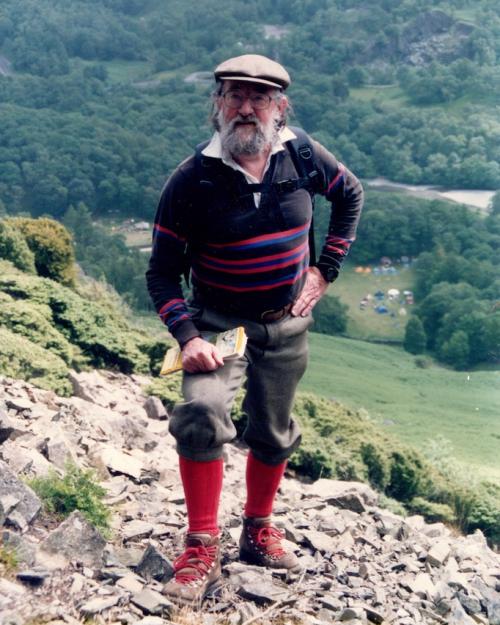John Reppy, John L. Wetherill Professor of Physics Emeritus in the College of Arts & Sciences, has received the 2026 Oliver E. Buckley Condensed Matter Physics Prize. The award, which recognizes and encourages outstanding theoretical or experimental contributions to condensed matter physics, consists of $20,000 and is awarded annually.
The award committee said Reppy received the prize for his "groundbreaking experiments that uncovered the role of vortices in the superfluid phase transition in helium films and observed anyonic braiding statistics of quasiparticles in the fractional quantum Hall effect, thus establishing the significance of topological excitations in two-dimensions."
Reppy was recognized along with David Bishop, Ph.D. ’78, for research they did on helium 50 years ago; two others were honored for more recent research on the topic.
"It is a great honor and a complete surprise,” said Reppy.
“The Buckley Prize, a major international honor in condensed matter physics, is a tremendous distinction for John Reppy and David Bishop, as well as for the department and for Cornell University,” Julia Thom-Levy, professor and chair of physics (A&S) said. “Their work has influenced many branches of physics within our department and beyond, and we are very proud to count them among our colleagues.”
Reppy’s early series of experimental and theoretical works laid the foundation for what are today known as topological phase transitions, an important area of physics that can reveal new classes of quantum matter and play a key role in quantum computing applications and other technologies.
“The experimental physics research they carried out at Cornell in the 1970’s has been foundational in our understanding of the types of order which can be found in nature. They were studying helium – the only substance which remains liquid down to absolute zero temperature,” said Erich Mueller, professor of physics (A&S).
“This award shows how research can have amazing impact in ways that were unexpected when it was originally done,” said Stephen Hilgartner, the Frederic J. Whiton Professor of Science & Technology Studies (A&S).
Reppy and Bishop measured the moment of inertia of a helium-coated mylar sheet, which was wrapped into a spiral. They found that the mechanism for superfluidity is different in thin films than in bulk fluids. Subsequently, David Nelson, Ph.D. ’74 and J. Michael Kosterlitz emphasized the connection between the Kosterlitz-Thouless (K-T) theory and the experimental results of Reppy and Bishop which established that this novel superfluid state exhibits a type of order now dubbed “topological.”
As Reppy wrote in a memoir published in Annual Review of Condensed Matter Physics in 2022, “As it turned out, this experiment was a realization of the Kosterlitz–Thouless (K-T) theory …The K-T transition was an early example of what is now known as a topological phase transition ... In 2016, Kosterlitz, Thouless, and Haldane were awarded the Nobel Prize for their theoretical contributions to the theory of topological phase transitions, including the K-T transition in 4He films.”
Reppy received his B.A. in 1954 and his M.S. in 1956 from the University of Connecticut, and his Ph.D. in 1961 from Yale University. Before coming to Cornell in 1966 he was a physics professor at Yale University. He retired from Cornell in 2004 after 44 years in the physics department – then continued his research into helium for another ten years. He received over 50 years of research support from the National Science Foundation.
He is a fellow of the American Academy of Arts and Sciences, American Association for Advancement of Science, American Physical Society, Institute of Physics and New York Academy of Sciences, and a member of the National Academy of Sciences.
His other honors include receipt of two Guggenheim Fellowships; a Fulbright-Hays Special Fellowship; the Fritz London Memorial Award; and the NASA Distinguished Public Service Medal for his role in NASA's Microgravity Research Program.




